
All Related Articles

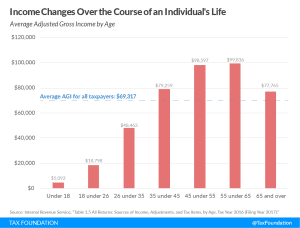
Average Income Tends to Rise with Age
Average income tends to rise dramatically as someone ages and gains education and experience. Viewing just one year of income tax data without digging any deeper misses some crucial context.
2 min read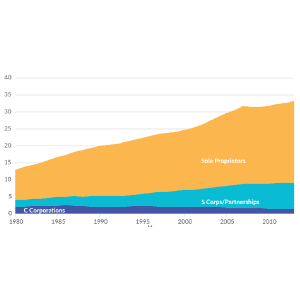
Increasing Individual Income Tax Rates Would Impact a Majority of US Businesses
Since most U.S. businesses are pass-through businesses, such as partnerships, S corporations, LLCs, and sole proprietorships, changes to the individual income tax, especially to top marginal rates, can affect a business’s incentives to invest, hire, and produce.
4 min read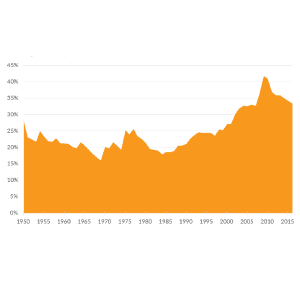
A Growing Percentage of Americans Have Zero Income Tax Liability
From 1986 to 2016, the top 1 percent’s share of income taxes rose from 25.8 percent to 37.3 percent, while the bottom 90 percent’s share fell from 45.3 percent to 30.5 percent.
4 min read
Who Benefits from Itemized Deductions?
While some tax preferences like the earned income tax credit (EITC) and child tax credit benefit lower- and middle-income households, others, like itemized deductions, benefit high-income households.
4 min read
The Top 1 Percent’s Tax Rates Over Time
In the 1950s, when the top marginal income tax rate reached 92 percent, the top 1 percent of taxpayers paid an effective rate of only 16.9 percent. As top marginal rates have fallen, the tax burden on the rich has risen.
5 min read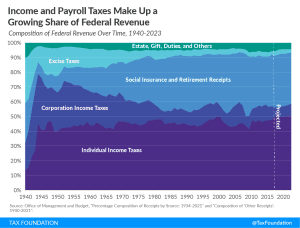
The Composition of Federal Revenue Has Changed Over Time
The federal income tax and federal payroll tax make up a growing share of federal revenue. Individual income taxes have become a central pillar of the federal revenue system, now comprising nearly half of all revenue.
2 min read
Income Taxes on the Top 0.1 Percent Weren’t Much Higher in the 1950s
Recent plans to increase the tax burden on wealthy Americans, such as higher marginal income tax rates and wealth taxes, are flawed in several ways, including in their lack of understanding of tax history.
4 min read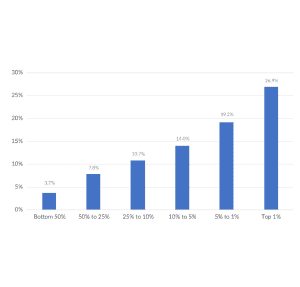
America Already Has a Progressive Tax System
Recent interest in raising the tax burden on high-income individuals glosses over the fact that the U.S. federal tax code is already progressive.
3 min read